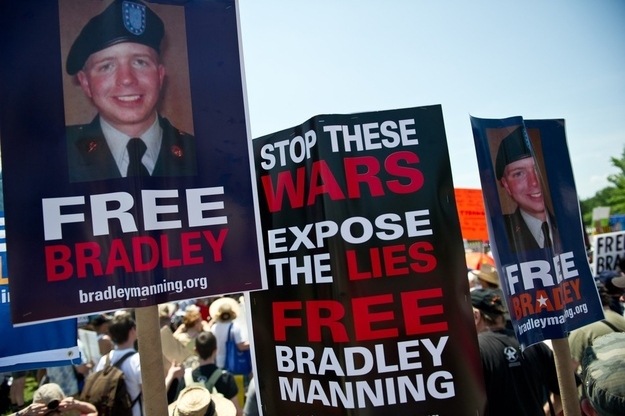On April 5, 2010, WikiLeaks.org released a graphic video showing a U.S. helicopter shooting and killing a Reuters photojournalist and several civilians during a July 2007 attack in Baghdad.

The video, which identified the two Reuters employees and broke down the timing of the attack, made headlines around the world. The soldiers in the helicopter appear to revel in their killings of what was later revealed to be 12 civilians.

On May 29, 2010, U.S. Army officials arrested Pfc. Bradley Manning, a 22-year-old intelligence analyst, after he allegedly boasted online of having leaked the Apache video and hundreds of thousands of classified documents to WikiLeaks.

Since his arrest, many left-leaning political activists have embraced Manning as a whistle-blower and a hero. An organization was formed soon after his arrest to raise money for the soldier's legal fund.
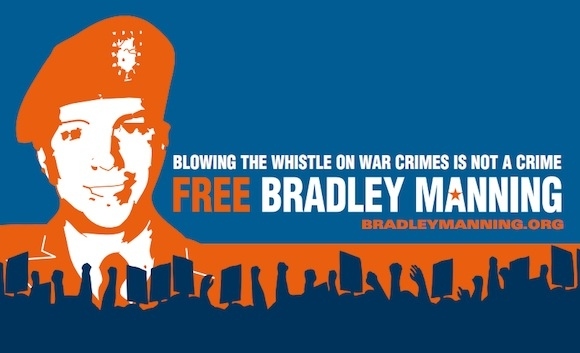
The Bradley Manning Support Network reports that more than 20,000 people have donated over $1.25 millon for Manning's legal fund. The group has also arranged worldwide demonstrations in support of the soldier and recruited prominent activists, including Daniel Ellsberg, who leaked the Pentagon Papers, to advocate for Manning's release.
Manning was arrested and held in custody in Kuwait before being formally charged with leaking classified information on June 10, 2010. He had been turned in by ex-hacker Adrian Lamo, who allegedly recorded his conversations with Manning and later turned them over to the Department of Defense and Wired. The magazine broke the news of the chats and Manning's alleged confession of responsibility:
In the course of their chats, Manning took credit for leaking a headline-making video of a helicopter attack that Wikileaks posted online in April. The video showed a deadly 2007 U.S. helicopter air strike in Baghdad that claimed the lives of several innocent civilians.
He said he also leaked three other items to Wikileaks: a separate video showing the notorious 2009 Garani air strike in Afghanistan that Wikileaks has previously acknowledged is in its possession; a classified Army document evaluating Wikileaks as a security threat, which the site posted in March; and a previously unreported breach consisting of 260,000 classified U.S. diplomatic cables that Manning described as exposing "almost criminal political back dealings."
"Hillary Clinton, and several thousand diplomats around the world are going to have a heart attack when they wake up one morning, and find an entire repository of classified foreign policy is available, in searchable format, to the public," Manning wrote.
In July, Manning was moved to a maximum-security prison in Quantico, Virginia, and held in solitary confinement.
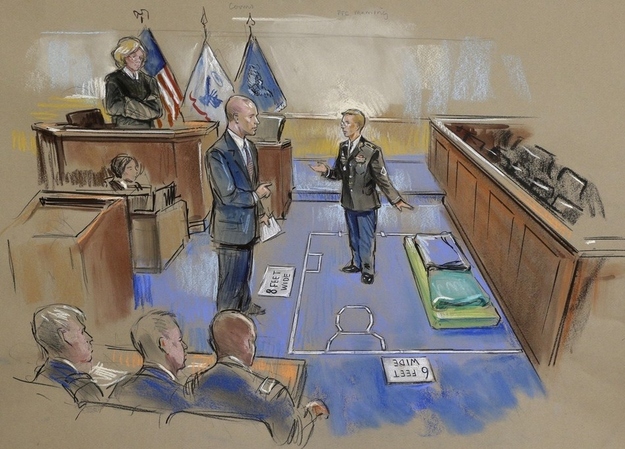
During a hearing late last year, Manning testified that while in the maximum-security facility, he was held in a solitary cell for 23 hours per day and deprived of a pillow, sheets, and personal possessions. Amnesty International and the United Nations special rapporteur on torture have both expressed concern over the soldier's "unnecessarily severe" treatment.
The military denied any allegations of mistreatment and told The New York Times that Manning had been designated for "maximum custody" confinement — applied because his escape would pose a national security risk — and placed on "prevention-of-injury watch," restrictions imposed to prevent him from harming himself.
Manning was moved from Quantico to a medium-security prison in Ft. Leavenworth, Kansas, in April 2011.
In 2010, WikiLeaks began publishing hundreds of thousands of classified State Department cables and battlefield reports from Iraq and Afghanistan.
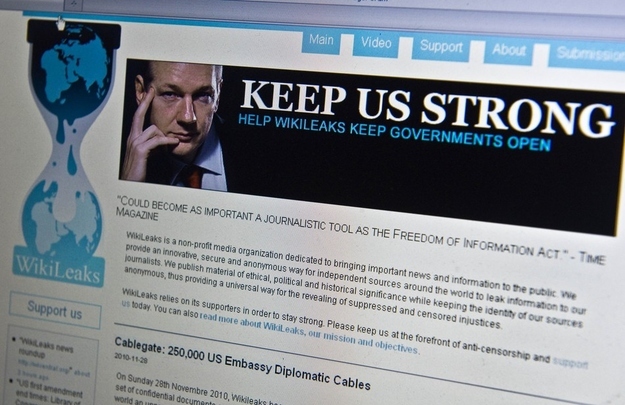
"The material WikiLeaks began publishing in 2010 documented complaints of Iraqi detainee abuses; a U.S. tally of civilian deaths in Iraq; and America's weak support for the government of Tunisia — a disclosure Manning supporters said encouraged the popular uprising that ousted the Tunisian president in 2011 and helped trigger the Middle Eastern pro-democracy uprisings known as the Arab Spring," The Associated Press reported Monday.
Manning appeared in military court for the first time on Dec. 16, 2011, at a pre-trial hearing in Ft. Meade, Maryland.
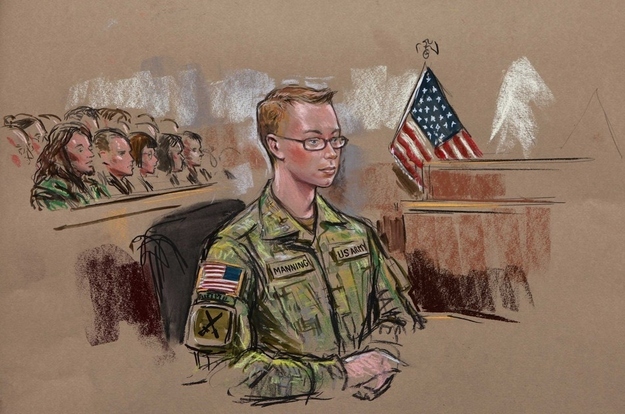
The legal teams made their first arguments at a six-day Article 32 hearing, the military equivalent of a grand jury hearing that determines whether enough evidence exists to merit a court-martial. On Jan. 18, 2012, a military judge recommended that Manning should face a court-martial. He was formally charged with aiding the enemy, wrongfully causing intelligence to be published on the internet, transmitting national defense information, and theft of public property or records in February 2012.
In a series of pre-trial hearings over the next nine months, Manning's defense team pushed for all charges against the soldier to be dropped, or failing that, for some of the charges to be dropped.

Judge Col. Denise Lind denied nearly all of the motions to dismiss charges against Manning that were filed over this period, except for one. On Jan. 8, 2013, Lind ruled that Manning had been illegally treated in his pre-trial confinement in Quantico and awarded 112 days credit off of any future prison sentence.
On Feb. 28, Manning plead guilty to 10 of the 22 charges against him. He also read a 35-page prepared statement aloud in court. An audio recording of his statement leaked the next week.
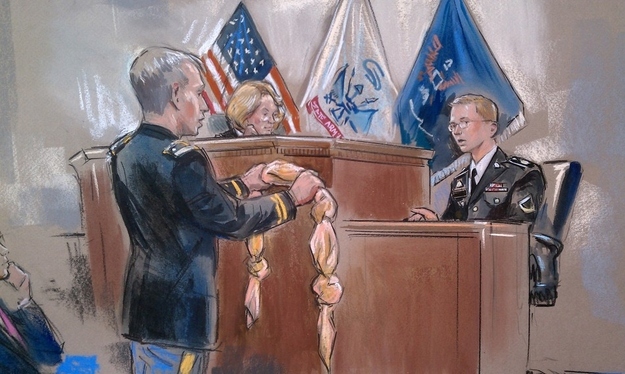
In his statement, Manning described his reaction to the Apache video depicting the deaths of civilians and two Reuters employees:
The most alarming aspect of the video to me, however, was the seeming delightful bloodlust [the soldiers] appeared to have.
They dehumanized the individuals they were engaging and seemed to not value human life by referring to them as "dead bastards" and congratulating each other on the ability to kill in large numbers. At one point in the video there is an individual on the ground attempting to crawl to safety. The individual is seriously wounded. Instead of calling for medical attention to the location, one of the aerial weapons team crew members verbally asks for the wounded person to pick up a weapon so that he can have a reason to engage. For me, this seems similar to a child torturing ants with a magnifying glass.
Manning said that he was encouraged by the public response to the video — that others were "as troubled" as he was.
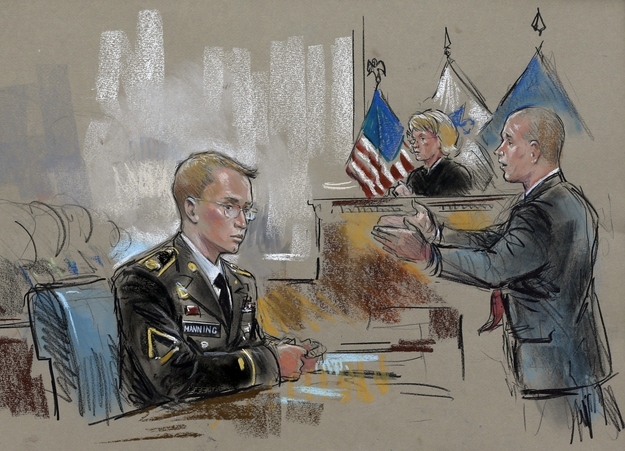
The court-martial of Manning began on June 3, 2013. He faces a life sentence if he is convicted of the most serious offenses, including espionage and aiding the enemy.
